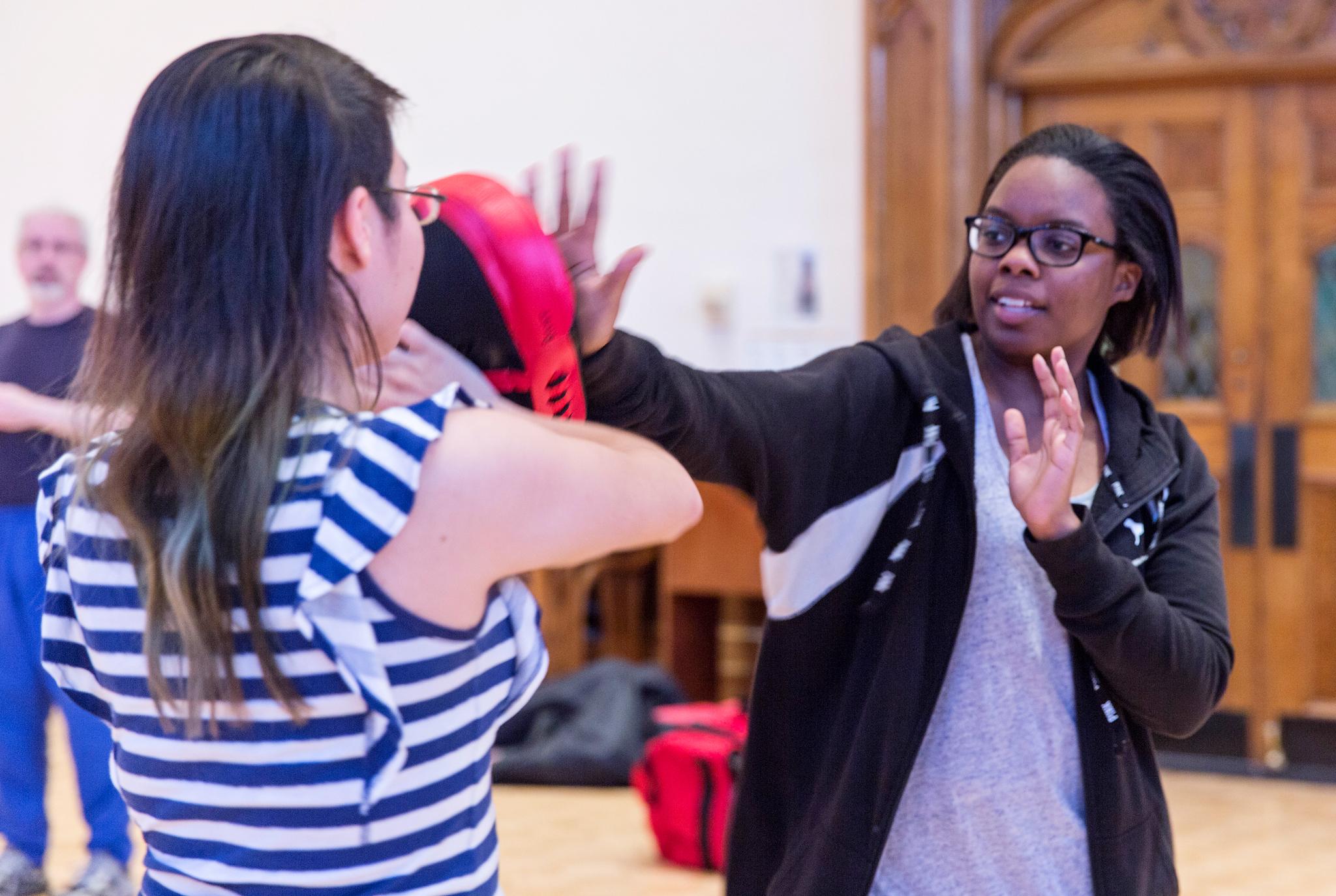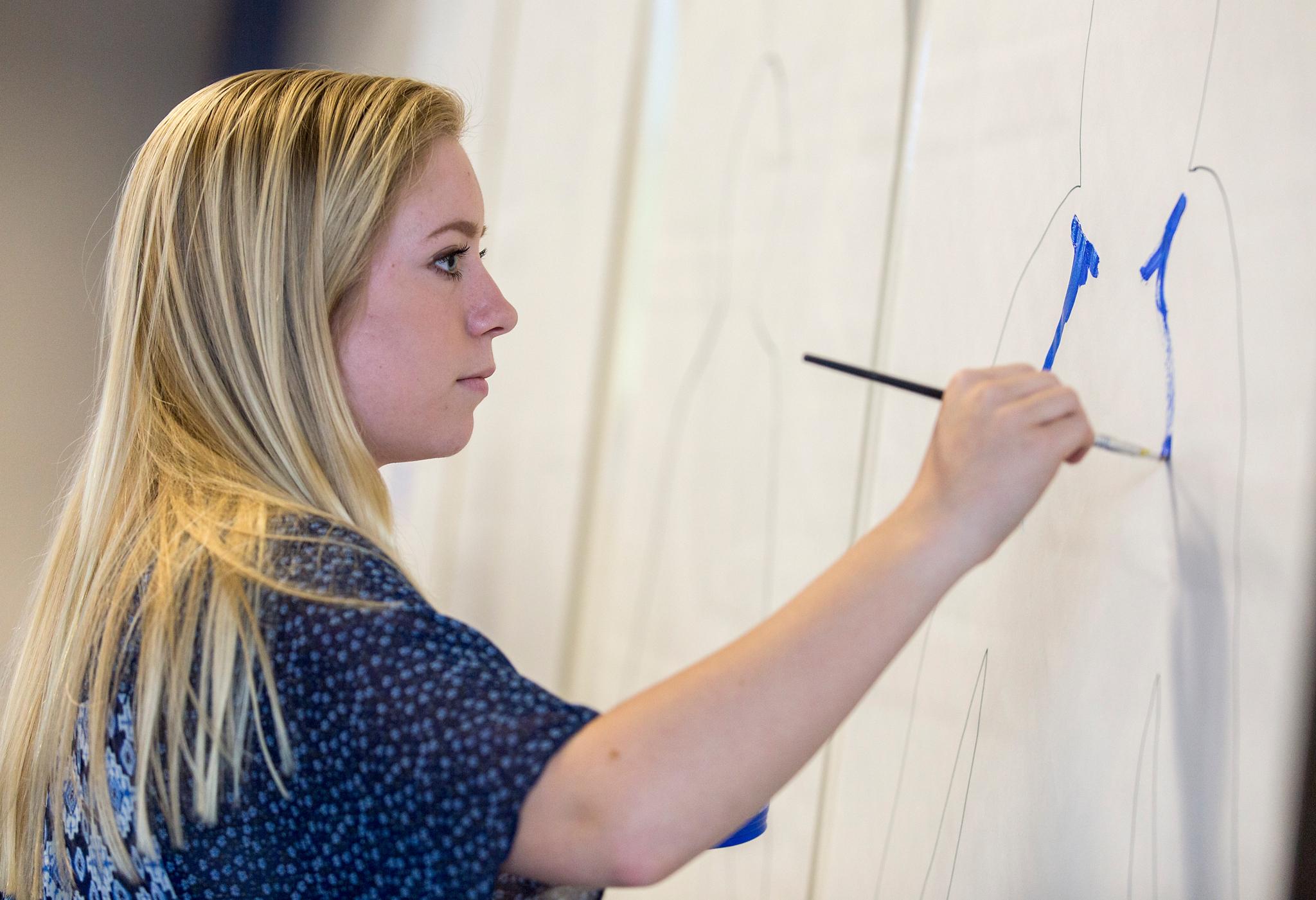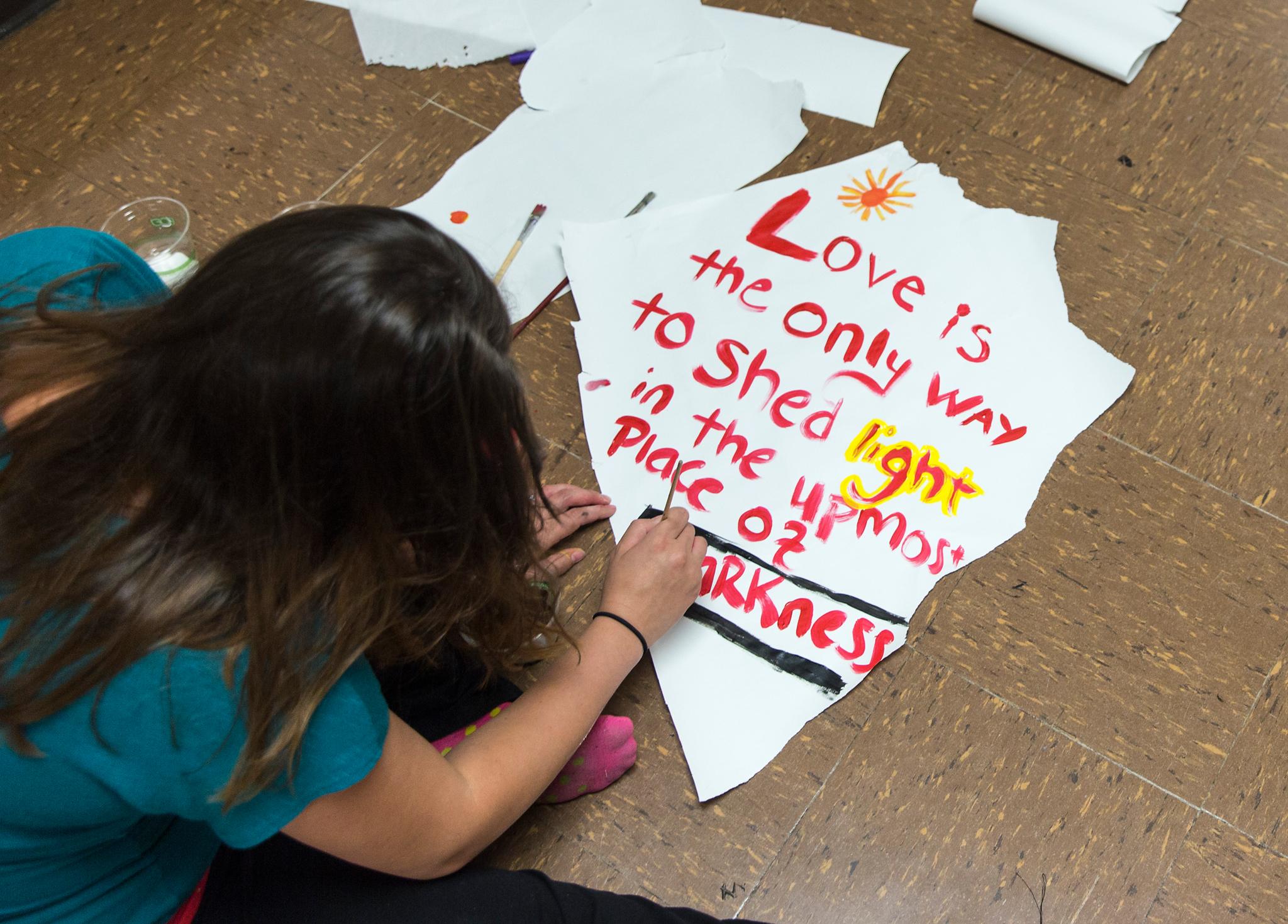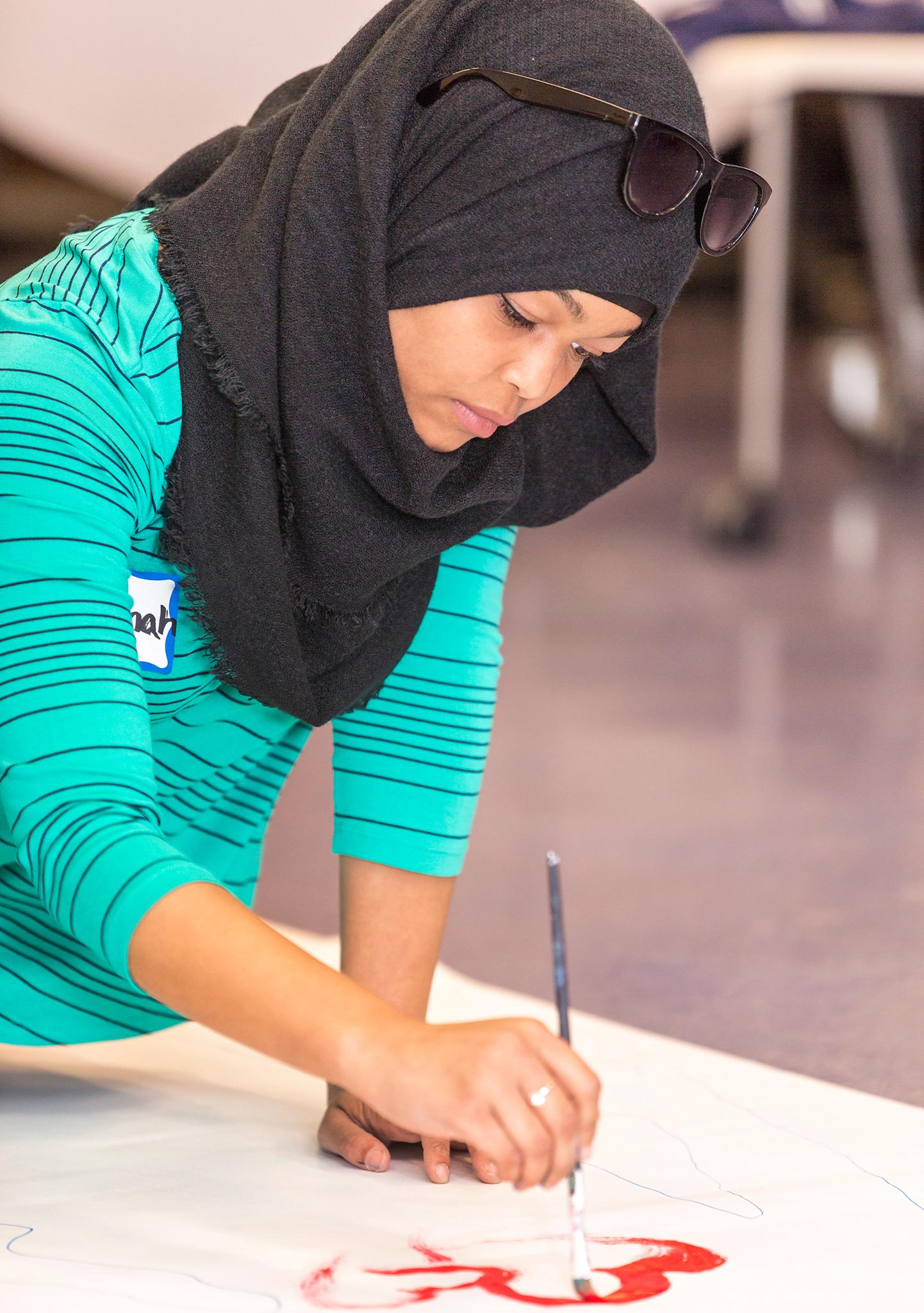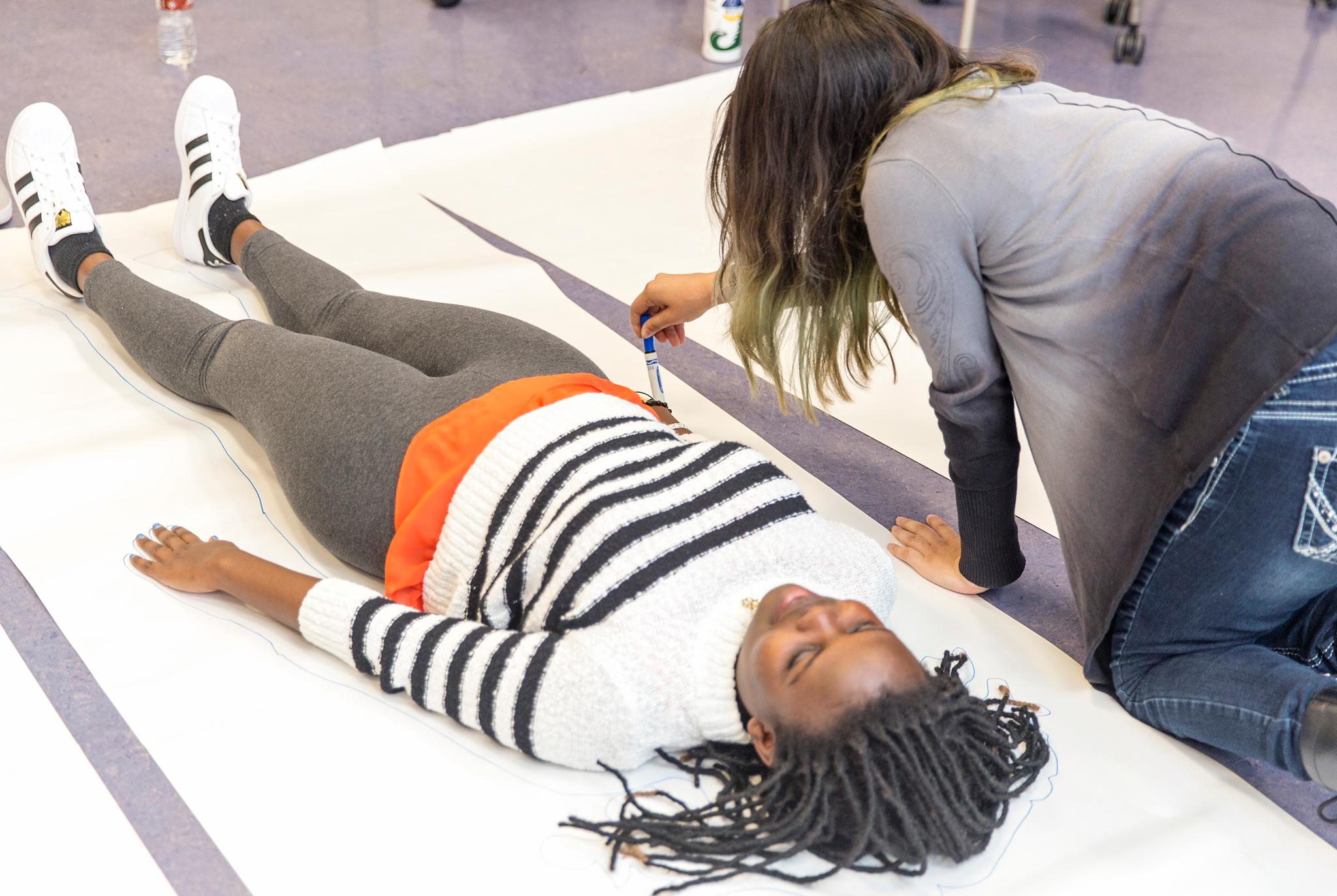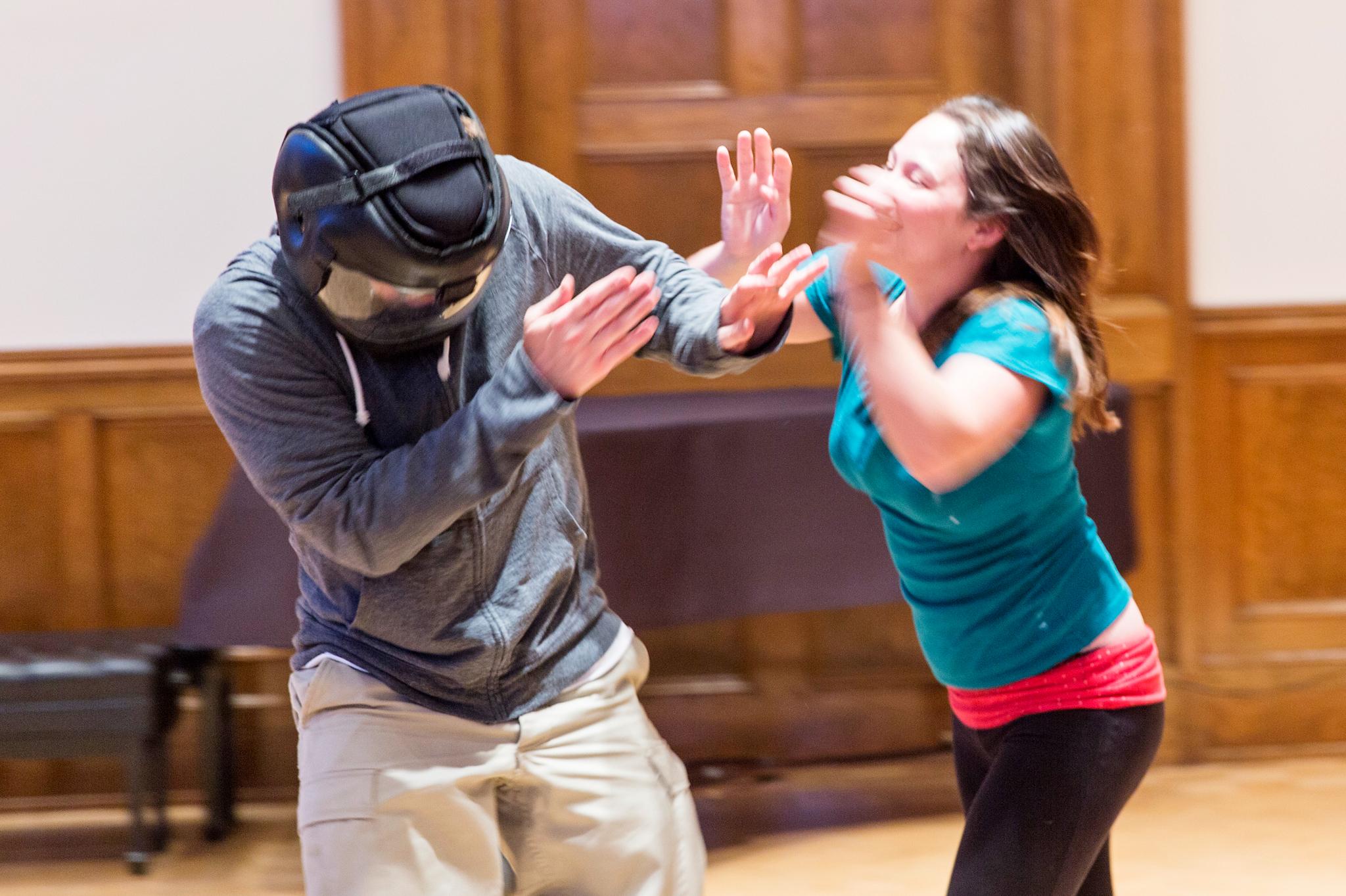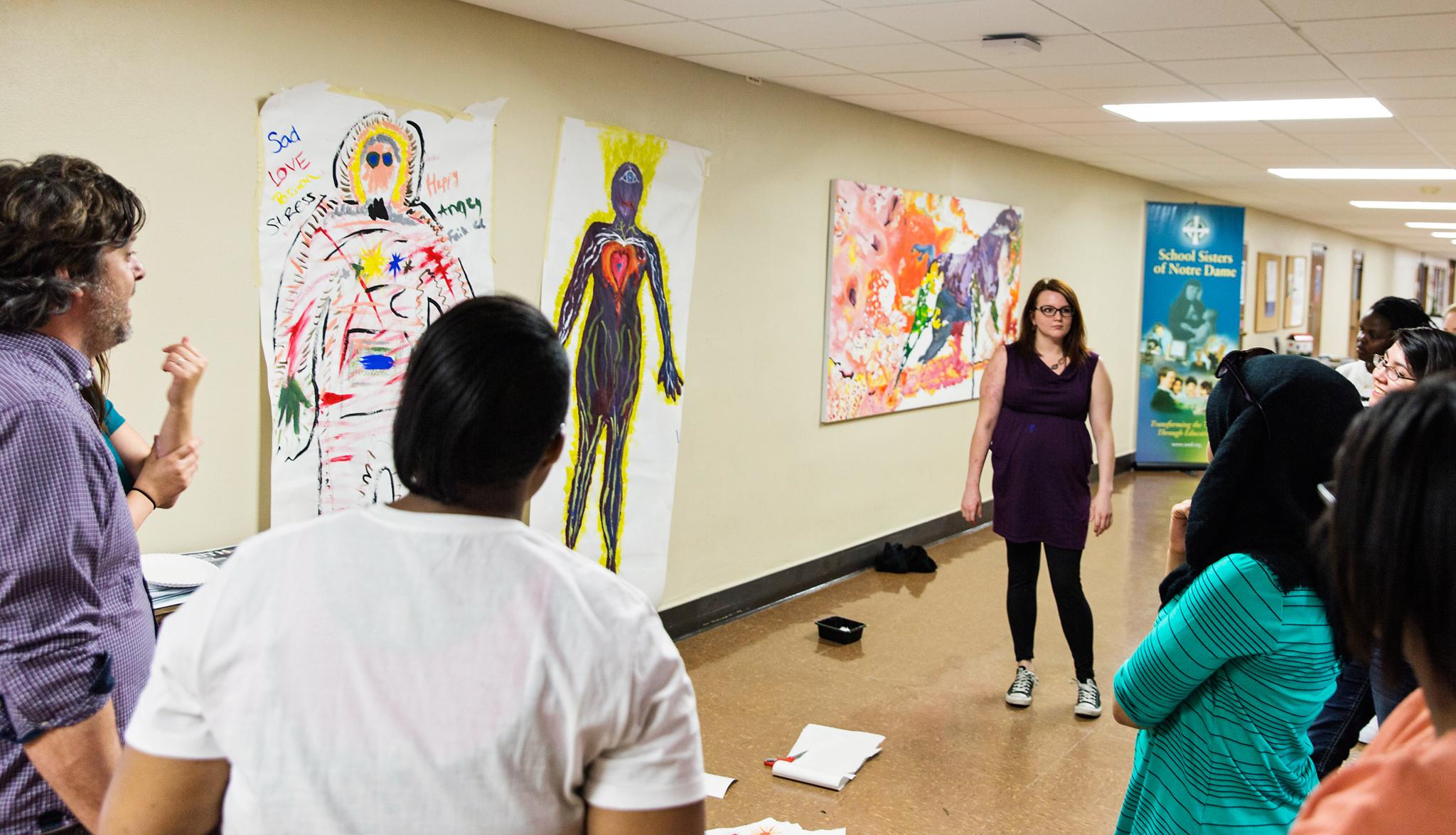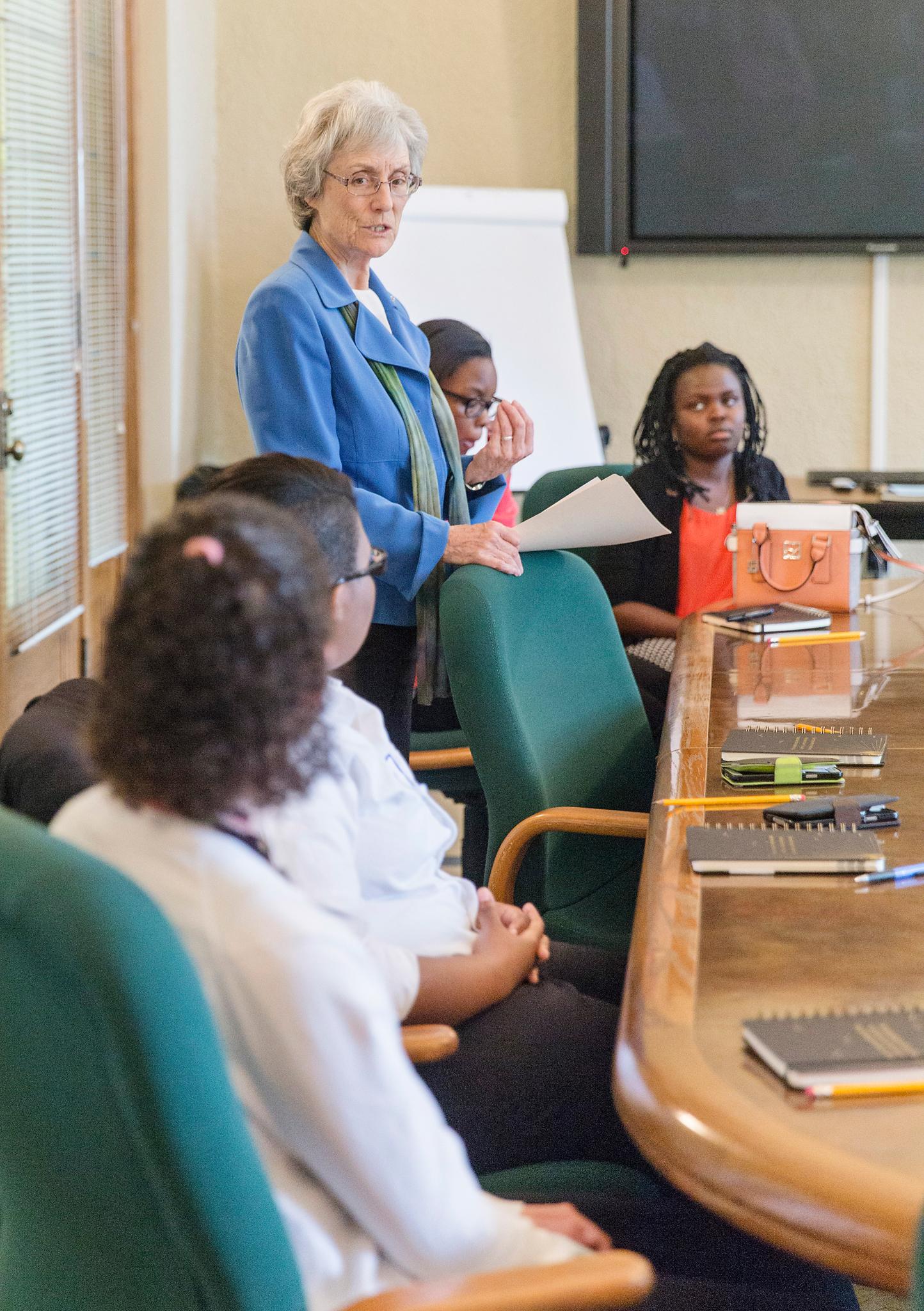Three days of investing in professional development
How the theories of theater, poetry, theology, and martial arts can make us stronger leaders
The rules of theater can be summed up in three statements, says Jenny Toutant, Education Director at the Milwaukee Repertory Theater:
- Give 100%.
- Wipe your feet at the door -- meaning forget about your worries while you are performing and commit fully to the event in front of you.
- Improvise and add value. (In the theater world, this is known as "yes, and..." We'll explain this later.)
Toutant is one of a handful of Milwaukee professionals helping college women refine their leadership skills at the Summer Leadership Institute, which is offered by Mount Mary University's Women's Leadership Institute thanks to sponsorship by Brady Corporation. Number three is probably the most important for these young college women. Most of them are meeting one another for the first time this week, and they're asked to engage in exercises which build upon their understanding of leadership as well as what other disciplines, such as theater, say about leadership.
The fundamental tenet of improv theater is a concept known as "Yes, and" meaning an actor accepts whatever concept is given to her by a fellow actor. She adds something of value to what she is given. In the theater world, this might mean when you're given a scene in a taxi with a monkey, you agree to that setting and character, and add that the monkey needs to be driven to the dentist on time and insists on Beyoncé music on the ride there. In the workplace as a leader, your team might present an idea, and your goal is to validate her idea and contribute to the idea's development. (Yes, and.) This type of feedback is more productive than saying "yes, but" because the "but" negates your team member's original idea.PHOTOS: Other sessions of the Summer Leadership Instittute include "Confidence" by Susan Marshall of the Backbone Institute; "Mindfulness: Calm and caring for ourselves" by Growing Minds; "Body Mapping" by Art Therapy professor Chris Belkofer; and "The Poetry of Leadership" by Karla Huston.
Toutant guides the participants through several exercises to teach about using their entire bodies for leadership and listening. In one activity, she calls out the letters of the alphabet, and each team of two has to use their entire bodies to form the letter. The catch is that they cannot talk. Giggles ensue, of course, as participants try to communicate nonverbally how to form the letter B or N.
After spelling all 26 letters, Toutant asks the participants, what did you need to succeed? Answers include: a common understanding of the alphabet, shared leadership to decide who forms what part of the letter, an open mind, trust, and problem solving. A simple exercise -- and it has a great connection to leadership in the workplace. To collaborate and be productive, all members of a team have to learn these skills.
"I don't think you can be a leader without a deep sense of your artistic self," says Ashley Tannert, Mount Mary University Communications major and Summer Leadership Institute participant.
